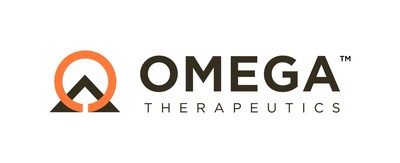Omega Therapeutics Unveils New Epigenomic Controller Development Candidate Targeting MYC-Driven Non-Small Cell Lung Cancer
Omega Therapeutics (Nasdaq: OMGA) has selected OTX-2101 as its next development candidate from the OMEGA Epigenomic Programming™ platform for treating non-small cell lung cancer (NSCLC). OTX-2101 targets the c-Myc oncogene, overexpressed in ~60% of NSCLC cases. Preclinical data showed it effectively down-regulates MYC, reduces tumor growth in vivo, and is well tolerated in models. The development will utilize lipid nanoparticle technology licensed from Nitto Denko Corporation, marking a significant advancement in their pipeline aimed at addressing urgent cancer treatment needs.
- OTX-2101 has shown potent down-regulation of MYC in preclinical studies.
- Preclinical data demonstrated effective tumor growth reduction in NSCLC models.
- The IND-enabling studies are underway, indicating progress towards clinical trials.
- Exclusive licensing of lipid nanoparticle technology from Nitto Denko Corporation enhances drug delivery potential.
- None.
OTX-2101 is the Second Development Candidate Arising from the Company's Pioneering OMEGA Epigenomic Programming™ Platform
CAMBRIDGE, Mass., Oct. 12, 2022 /PRNewswire/ -- Omega Therapeutics, Inc. (Nasdaq: OMGA) ("Omega"), a clinical-stage biotechnology company pioneering the first systematic approach to use mRNA therapeutics as a new class of programmable epigenetic medicines by leveraging its OMEGA Epigenomic Programming™ platform, today announced that it has selected OTX-2101 as the next Omega Epigenomic Controller™ (OEC) development candidate to advance into Investigational New Drug (IND)-enabling studies for the treatment of non-small cell lung cancer (NSCLC).
Omega scientists rationally engineered OTX-2101 to control the expression of the c-Myc (MYC) oncogene, a historically undruggable target in NSCLC. MYC is a master transcription factor that regulates cell proliferation, differentiation and apoptosis and plays a significant role in more than
"NSCLC accounts for nearly
The OTX-2101 clinical development program will utilize a lung tissue-targeting lipid nanoparticle (LNP) technology exclusively licensed from Nitto Denko Corporation ("Nitto"). This represents the first option exercised by the Company as part of an existing arrangement that provides Omega the option to exclusively license Nitto's LNP technology for therapeutic development across multiple targets and tissue types.
"This milestone for OTX-2101, which comes on the heels of the MYCHELANGELO™ I trial initiation for OTX-2002 for the treatment of hepatocellular carcinoma, highlights the power of our OMEGA Epigenomic Programming™ platform to engineer candidate mRNA therapeutics customized to the biology of the disease," said Mahesh Karande, President and Chief Executive Officer of Omega Therapeutics. "Our data-driven platform enables us to rapidly design novel medicines addressing the root cause of disease and tailor our delivery strategy to target the relevant cells and tissues. By leveraging both our internal development efforts and strategic external partnerships, we are able to accelerate clinical development of our OECs, with the goal of bringing innovative new therapies to patients sooner. We are excited to continue to deliver strong execution of our strategy, meet committed milestones, and establish a deep pipeline of promising candidates to treat a broad range of indications."
OTX-2101 is a first-in-class Omega Epigenomic Controller™ in development for the treatment of non-small cell lung cancer (NSCLC). OTX-2101 is an mRNA therapeutic delivered via lipid nanoparticles (LNPs) and is designed to downregulate MYC expression pre-transcriptionally through epigenetic modulation while potentially overcoming MYC autoregulation. Genetic analysis conducted by others has revealed that MYC overexpression is present in approximately
Omega Therapeutics, founded by Flagship Pioneering, is a clinical-stage biotechnology company pioneering the first systematic approach to use mRNA therapeutics as a new class of programmable epigenetic medicines. The company's OMEGA Epigenomic Programming™ platform harnesses the power of epigenetics, the mechanism that controls gene expression and every aspect of an organism's life from cell genesis, growth, and differentiation to cell death. Using a suite of technologies, paired with Omega's process of systematic, rational, and integrative drug design, the OMEGA platform enables control of fundamental epigenetic processes to correct the root cause of disease by returning aberrant gene expression to a normal range without altering native nucleic acid sequences. Omega's modular and programmable mRNA medicines, Omega Epigenomic Controllers™, target specific epigenomic loci within insulated genomic domains, EpiZips™, from amongst thousands of unique, mapped, and validated genome-wide DNA-sequences, with high specificity to durably tune single or multiple genes to treat and cure diseases through Precision Genomic Control™. Omega is currently advancing a broad pipeline of development candidates spanning a range of disease areas, including oncology, regenerative medicine, multigenic diseases including immunology, and select monogenic diseases, including alopecia.
For more information, visit omegatherapeutics.com, or follow us on Twitter and LinkedIn.
This press release contains forward-looking statements within the meaning of the Private Securities Litigation Reform Act of 1995. All statements contained in this press release that do not relate to matters of historical fact should be considered forward-looking statements, including without limitation statements regarding our product candidate pipeline, including efficacy, trial design, regulatory submissions, approvals and timing thereof, the launch of a clinical trial of OTX-2101 and timing thereof, and the filing of future IND applications and timing thereof. These statements are neither promises nor guarantees, but involve known and unknown risks, uncertainties and other important factors that may cause our actual results, performance or achievements to be materially different from any future results, performance or achievements expressed or implied by the forward-looking statements, including, but not limited to, the following: the novel technology on which our product candidates are based makes it difficult to predict the time and cost of preclinical and clinical development and subsequently obtaining regulatory approval, if at all; the substantial development and regulatory risks associated with epigenomic controller machines due to the novel and unprecedented nature of this new category of medicines; our limited operating history; the incurrence of significant losses and the fact that we expect to continue to incur significant additional losses for the foreseeable future; our need for substantial additional financing; our investments in research and development efforts that further enhance the OMEGA platform, and their impact on our results; uncertainty regarding preclinical development, especially for a new class of medicines such as epigenomic controllers; the fact that our product candidates may be associated with serious adverse events, undesirable side effects or have other properties that could halt their regulatory development, prevent their regulatory approval, limit their commercial potential, or result in significant negative consequences; the impact of increased demand for the manufacture of mRNA and LNP based vaccines to treat COVID-19 on our development plans; difficulties manufacturing the novel technology on which our OEC candidates are based; our ability to adapt to rapid and significant technological change; our reliance on third parties for the manufacture of materials; our ability to successfully acquire and establish our own manufacturing facilities and infrastructure; our reliance on a limited number of suppliers for lipid excipients used in our product candidates; our ability to advance our product candidates to clinical development; and our ability to obtain, maintain, enforce and adequately protect our intellectual property rights. These and other important factors discussed under the caption "Risk Factors" in our Quarterly Report on Form 10-Q for the quarter ended June 30, 2022, and our other filings with the SEC, could cause actual results to differ materially from those indicated by the forward-looking statements made in this press release. Any such forward-looking statements represent management's estimates as of the date of this press release. While we may elect to update such forward-looking statements at some point in the future, we disclaim any obligation to do so, even if subsequent events cause our views to change.
1Expression and clinical significance of PD-L1 and c-Myc in non-small cell lung cancer. J Cancer Res Clin Oncol, 2019 Nov; 145(11): 2663-2674. https://pubmed.ncbi.nlm.nih.gov/31541338/ |
Investor and Media Contact:
Eva Stroynowski
617.949.4370
estroynowski@omegatx.com
Media Contact:
Jason Braco
LifeSci Communications
646.751.4361
jbraco@lifescicomms.com
![]() View original content to download multimedia:https://www.prnewswire.com/news-releases/omega-therapeutics-unveils-new-epigenomic-controller-development-candidate-targeting-myc-driven-non-small-cell-lung-cancer-301647070.html
View original content to download multimedia:https://www.prnewswire.com/news-releases/omega-therapeutics-unveils-new-epigenomic-controller-development-candidate-targeting-myc-driven-non-small-cell-lung-cancer-301647070.html
SOURCE Omega Therapeutics







